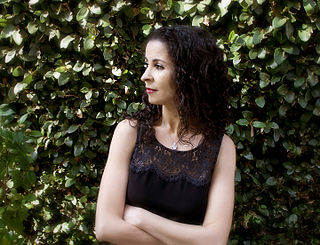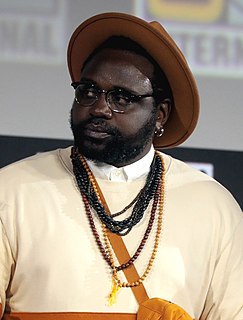A Quote by Laila Lalami
I love James Baldwin essays, but also his novels. I recently read "Another Country." I couldn't believe how ahead of his time he was.
Related Quotes
I tried to fortify myself with the best nonfiction and fiction I could lay my hands on, from the essays of James Baldwin and Joan Didion, to the stories and novels of Ralph Ellison, Roberto Bolano and Celine. Distinctive voices like these were a source of constant nourishment on all range of matters, from punctuation to philosophy.
It was really always about bringing back [James] Baldwin's words in all their rawness, in all their impact - in the way he analyzes not only this country but also the history of this country, the images that this country is fabricating through Hollywood, and what consequence that has in our imagination.
Patriotism, or the peculiar relation of an individual to his country, is like the family instinct. In the child it is a blind devotion; in the man in intelligent love. The patriot perceives the claim made upon his country by the circumstances and time of her growth and power, and how God is to be served by using those opportunities of helping mankind. Therefore his country's honor is dear to him as his own, and he would as soon lie and steal himself as assist or excuse his country in a crime.
A key text for me is James Baldwin's essays. And, in particular, his essay Stranger in the Village. It's a text that I've used in a lot of paintings. The essay is from the mid-'50s, when he's moved to Switzerland to work on a novel, and he finds himself the only black man living in a tiny Swiss village. He even says, "They don't believe I'm American - black people come from Africa." The essay is not only about race relations, but about what it means to be a stranger anywhere.
I have studied the enemy all my life. I have read the memoirs of his generals and his leaders. I have even read his philosophers and listened to his music. I have studied in detail the account of every damned one of his battles. I know exactly how he will react under any given set of circumstances. And he hasn't the slightest idea of what I'm going to do. So when the time comes, I'm going to whip the hell out of him.
I gave examples from my clinical practice of how love was not wholly a thought or feeling. I told of how that very evening there would be some man sitting at a bar in the local village, crying into his beer and sputtering to the bartender how much he loved his wife and children while at the same time he was wasting his family's money and depriving them of his attention. We recounted how this man was thinking love and feeling love--were they not real tears in his eyes?--but he was not in truth behaving with love.




































